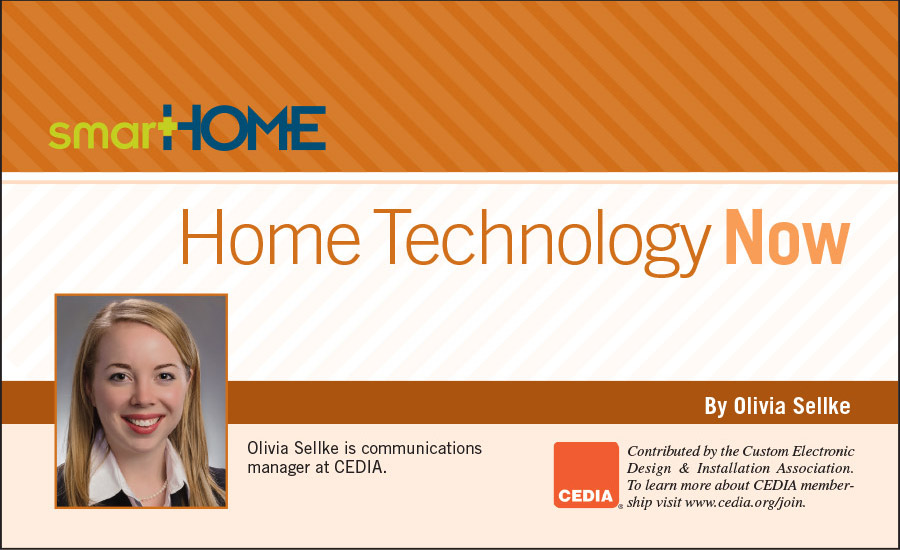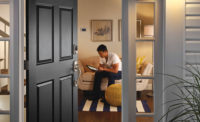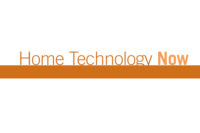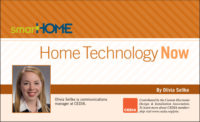An experienced home health professional answers questions and gives advice about the industry.
Home health solutions have often been hailed as shining examples of additional ways to add recurring revenue to your company. As security professionals you may think adding this service will be easy because alarms and sensors are already part of what you do. We sat down with Ric Johnson, a home technology professional who specializes in home health, to find out the real deal about home health services and the things you need to know.
1. How did your company begin offering home health solutions?
In the early 1990s my mentor and associate developed a brain tumor that turned out to be cancer. As he progressed through this disease, his movements, daily care and even his sleep patterns drastically changed, prompting us to make changes in his living arrangements. As a single man and an only child, he had no other relatives to assist him, so my dad and I learned quickly what we needed to do. We partnered with his oncologist and with my sister, a doctor specializing in internal medicine. With their assistance, we began installing security door and window contacts at various points inside the home, such as his bedroom and bathroom doors. Three cabinets in the kitchen were modified with fold-down shelving for medicine, medical equipment and built-in oxygen tank storage.
From this beginning, we have developed a medical services practice and expanded our home health practice to cover early onset Alzheimer’s and dementia. The latter was quite helpful when my wife’s father developed this in 2006 and we were able to keep him in his home until 2010 when he finally needed round-the-clock care. We got into home health because of a personal need and have developed a process that helps families, caregivers and patients cope with issues that come with aging, disease or disability.
2. What do you think the biggest misconception is about installing home health solutions?
That it is a one-solution issue. A growing home health solution provider is constantly learning and listening to the various stakeholders in the process. In many cases, the outcomes are helping families through traumatic situations they are trying to understand, with needs that are immediate and disruptive. In other cases, you must be prepared for a long-term relationship that will go through various stages and will often require additional services, such as controllable locks and programming that will tell you someone is trying to exit (for wandering issues); wireless sensors such as bed pressure pads to monitor sleep and rest cycles; and motion detector programs to allow for monitoring movement or the lack thereof. Mostly though, is it learning to listen fully to everyone involved — not in order to make quick determinations, but to take the time to run every possible solution through to the end so the desired outcomes can be achieved.
3. Are you seeing a demand for home health solutions?
The short answer is yes, this is a growing market. But that is also a flippant answer, as this is not a market for everyone. Some see home health as an extension of the wellness programs from providers such as Apple Healthkit and Google. That is a market that most ESC’s understand and can start with immediately. Our progress has been working with NAHB and AARP, getting our Certified Aging in Place Specialist (CAPS) certification, working closely with various medical providers to build trust, and developing an open solutions reputation that doesn’t depend on one thing, but that listens and offers various paths to meet specific outcomes.
4. How do home health solutions differ from other technology solutions your company installs?
It will take you out of your comfort zone. You will need to learn and understand medical issues, develop a HIPAA plan and make sure everyone in you company understands what it means and how any information is stored and handled. The fines for a single violation are severe. In many cases standard security devices are being used, but for different outcomes. Instead of monitoring for intrusion, some of our sensors are programed to tell us when things don’t happen, such as a lack of movement from a bedroom by a set time, medicine cabinets that aren’t opened on time, or a thermostat that has been turned way down or way up. These are all issues that happen on a daily basis, and the technology helps caregivers monitor the situation without having to be there.
5. What advice would you have for a home technology professional who wants to start offering home health solutions?
Partner with a CAPS builder in your community, listen to his or her experiences and see if your expertise will be a fit. Talk with family members and staff members who may have medical issues; assisting with their needs could be a basis for you to develop a practice. Be open minded and listen carefully to each prospective client’s needs and issues, and take the time to fully study a solution before presenting it — i.e. fully understand all stakeholders in the process, from the patient, to the spouse or children, medical providers, hospice, other home healthcare providers such as nursing, cleaning staff, religious and faith-based visitors and staff. All of these come into focus. Home healthcare is a growing market and can be both rewarding and profitable, but it takes a long-term approach, not just a few weeks of planning and installation, but the willingness to stay with a client for a long term.
EDITOR’S NOTE: Ric Johnson is president and CEO of Right at Home Technologies, LLC., in Ohio. The company is primarily an electronic systems contracting practice that works in the aging in place and medical office space. The company also works with a select group of general contractors and builders in the custom install space.




